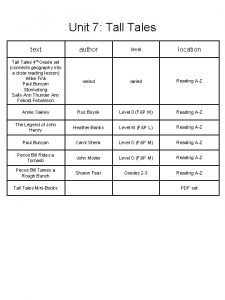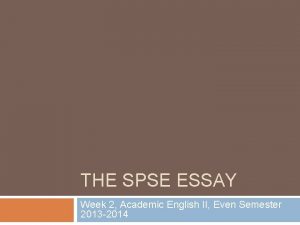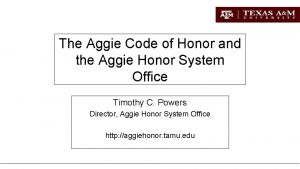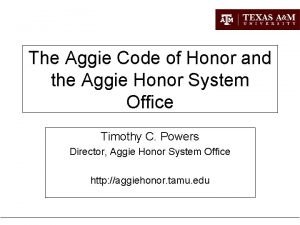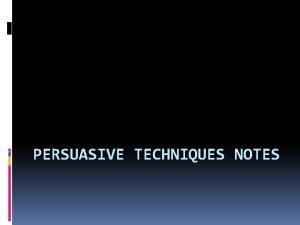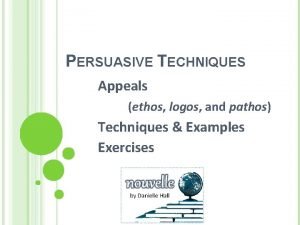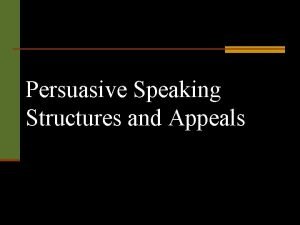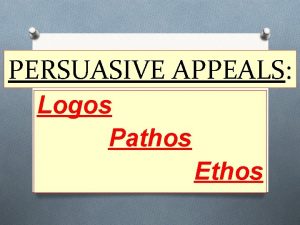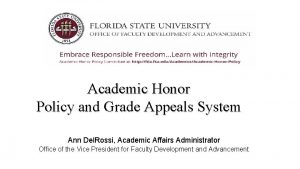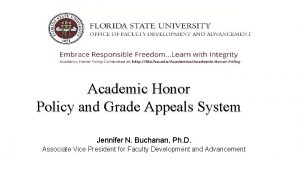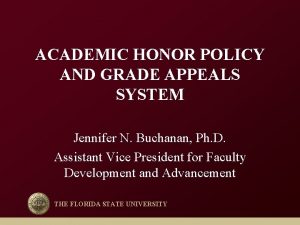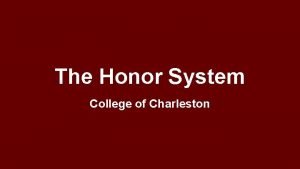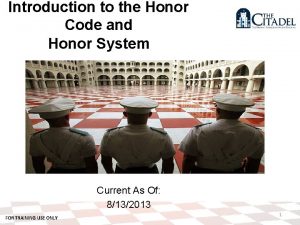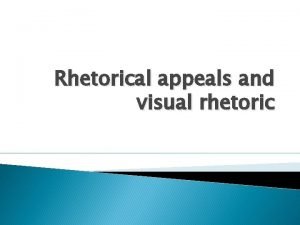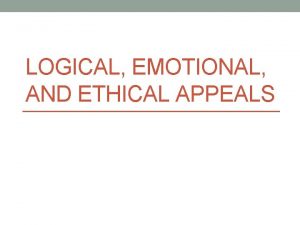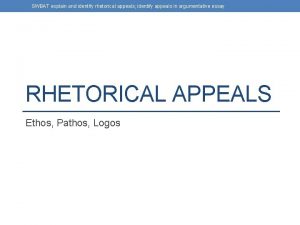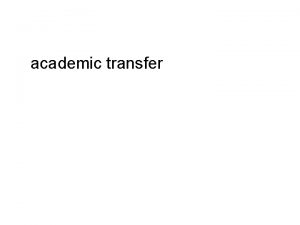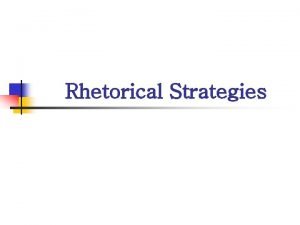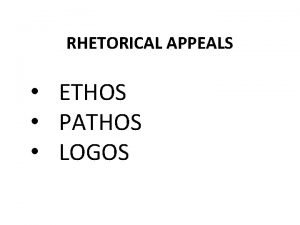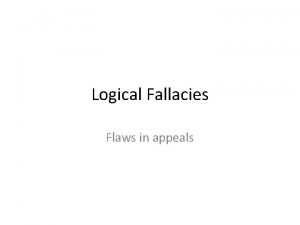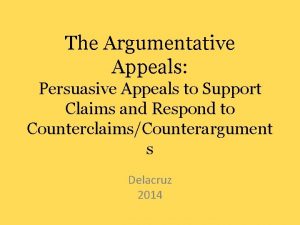Academic Honor Policy and Grade Appeals System Ann

























- Slides: 25

Academic Honor Policy and Grade Appeals System Ann Del. Rossi, Academic Affairs Administrator Office of the Vice President for Faculty Development and Advancement

Purpose • Introduction to the Academic Honor Policy at FSU • Discuss how we can prevent academic dishonesty from occurring in your class • What should you do if you find someone violating the Academic Honor Policy

Charges • Plagiarism • Cheating • Unauthorized group work • Fabrication, falsification, & misrepresentation

Charges continued • Multiple Submission • Abuse of academic materials • Complicity in academic dishonesty • Attempting to commit an offense

Graduate Student Issues • Prelims, comps, thesis or dissertation treated as egregious and sent to Step 2 • Charging decision made by committee comprised of department chair, outside member, and faculty member appointed by dean

Academic Integrity Survey • Conducted in Spring Semester 2003 and 2015 as part of ICAI national survey – 2, 179 respondents; 36% faculty response rate, 23% TA response rate, and 13% student response rate.

Good News • Students report both cheating less frequently and seeing others cheat less frequently at FSU than in high school. • In 2015, students report cheating much less frequently than they did in 2003. • Students, faculty, and TAs report that they understand support the policy (and do so at higher levels than in 2003).

Academic Integrity Survey Students today report cheating less than those in 2003, with the exception of one behavior. What is that behavior? A. Plagiarism B. Unauthorized Collaboration C. Multiple Submission of papers

Bad News • Instructors underestimate how frequently students collaborate with others on assignments (when they aren’t supposed to!). • Students said they don’t view working together as serious cheating. • Students report creating course-based Facebook groups and using them to collaborate on homework and/or quizzes. • Taking exams online increases dramatically the level of reported cheating behavior.

Online Courses • 2015 Survey Results – frequency of reported cheating behaviors (from an average of 5% of all types of cheating during f-t-f exams to 22% collaborating with others, 25% getting unauthorized help, and 62 -65% consulting unauthorized materials during online exams). • Resources – Testing Center offers proctored services to students who are both on and off campus: https: //distance. fsu. edu/students/distance-learning-exams. • Support for online course development from ODL at: https: //distance. fsu. edu/.

Facebook • Instructors have discovered instances of students creating course-based Facebook groups and using them to collaborate on homework and/or quizzes. • If you assign individual work outside of class, please articulate your policy regarding collaboration clearly and be explicit about how it applies to study groups on Facebook and elsewhere online. For more information, see: http: //fda. fsu. edu/Academics/Academic-Honor-Policy.

Preventing Academic Dishonesty How do we make cheating more difficult? What should I do if I suspect someone has violated the Academic Honor Policy?

Florida State University Academic Honor Policy (AHP)

Preventing Academic Dishonesty • Teaching meaning of plagiarism, esp. paraphrasing versus quoting • “Turn-it-in. com, ” “Safe. Assign” and other resources – make available Mutual respect between student and instructor and confident verbal reinforcement • Syllabus: http: //facsenate. fsu. edu

Preventing Test Cheating • Making cheating more difficult • Following through (learn policy) • Have a plan for test-time (verify independently) • Emphasize “Complicity” charge • Confident verbal reinforcement

Conclusions and Themes • Today’s students are acting with more integrity in the classroom than those in 2003. • Make clear your expectations regarding unauthorized collaboration, especially between friends (FB or otherwise), who don’t believe that doing homework together is wrong. • Students assume you know more than you do about academic integrity. Learn the policy.

Conclusions and Themes continued • Students look to you for cues about whether cheating will be tolerated and don’t want you to! • Students will hesitate to inform you • Prevention is important • Our involvement is critical • Important to address use of social media (esp. FB) and online testing issues

Academic Honor Policy By Academic Year (New Policy Effective Fall 2005) 400 350 279 300 200 161 246 239 208 157 150 100 50 Academic Year 20 15 -1 6* 5 -1 14 20 20 13 -1 4 3 -1 12 20 2 -1 11 20 20 10 -1 1 0 -1 09 20 9 -0 08 20 8 -0 07 20 06 -0 7 0 20 Number of Cases 250 316 294 352 335 *Through August 15, 2016

Cases and Outcomes: 2015 -16 Academic Year* Disciplinary Probation; 9 Educational Activities; 11 Ethics Workshop; 2 F in the Course; 56 Additional Academic Work; 21 Academic Integrity Seminar; 4 Suspension; 2 Reprimand (verbal or written); 1 Reduced grade for the course; 45 Reduced grade for the assignment; 81 F on the assignment; 169 * Through August 15,

Grade Appeals System • Also involves integrity • Emphasizes centrality of instructor judgment in grading process • Grade must be imposed in an arbitrary, capricious, or discriminatory manner to be overturned

Grade Appeals System continued • Starts with evaluation (grading) standards expressed in syllabus • Minimize exposure through consistency

Grade Appeals System

Resources in your Department • Your supervising faculty member should always be informed about any allegations that arise in your class. • Your department chair should also be informed by either your supervising faculty member or by you. • Either of them can inform you of typical penalties in the department and can sit in when you meet with students.

University Resources Office of Faculty Development and Advancement: http: //fda. fsu. edu under Academics – Academic Honor Policy, Grade Appeals System, annual Important Policies and Procedures Memo, or at 850 -644 -6876. (Ann Del. Rossi, Ameko Dillard, Andrea White) Students should be referred to the Dean of Students Department at 644 -2428.

University Resources continued Important Policies and Procedures memo contains important information for instructors. Found on http: //fda. fsu. edu under Academics. ODL resources at: https: //distance. fsu. edu/.
 Academic honor policy fsu
Academic honor policy fsu First i must honor god second honor his name
First i must honor god second honor his name Davy crockett character traits
Davy crockett character traits Anne hathaway poem by carol ann duffy
Anne hathaway poem by carol ann duffy Usc academic integrity
Usc academic integrity Defense office of hearings and appeals
Defense office of hearings and appeals Grade 9 academic geography
Grade 9 academic geography 2nd grade academic vocabulary
2nd grade academic vocabulary Spse essay example
Spse essay example Timothy powers tamu
Timothy powers tamu Aggie code of honor
Aggie code of honor Blessing and honor glory and power
Blessing and honor glory and power What appeals to logic
What appeals to logic Rhetorical devices kahoot
Rhetorical devices kahoot Olfactory imagery
Olfactory imagery Examples of understatement
Examples of understatement Persuasive appeals
Persuasive appeals Pros and cons of persuasion
Pros and cons of persuasion Persuasive appeals
Persuasive appeals Persuasive speech structures
Persuasive speech structures Ethos
Ethos Patho ethos logos
Patho ethos logos Persuasive appeals
Persuasive appeals Space cat choices examples
Space cat choices examples Appeals ethos pathos logos
Appeals ethos pathos logos Appeal to ethis
Appeal to ethis


